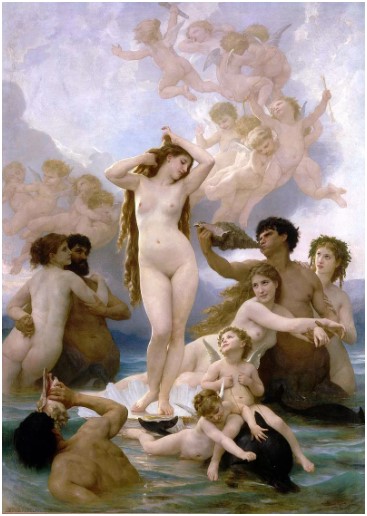Early Modern period//Modern age history;
The modern era refers to a period of history from the late 19th century to the present day characterized by significant social, cultural, economic and technological changes. It is marked by advances in communication and transportation technologies, the growth of consumer culture, the growth of world trade and finance, and the emergence of new political ideologies and social movements.
 |
| The Modern age |
The modern era has also witnessed profound shifts in social and political structures, with the rise of democratic movements, the expansion of civil rights and welfare programs, and the rise of institutions of global governance. These changes led to greater social mobility and a greater emphasis on individualism and personal freedom.
Despite these advances, the modern era has also been marked by major challenges, including environmental degradation, economic inequality, and political instability. As we move forward into the 21st century, the challenges facing humanity are more complex than ever before and it will take innovation, collaboration and collective action to navigate the turbulent waters of the modern age.
T.S.Eliot is a modern poet;by his poetry:
T.S. Eliot was one of the most influential poets of the modernist movement, and his poetry was marked by a complex and layered approach to language and form. Eliot's work often dealt with themes of isolation, frustration, and the search for meaning in a rapidly changing world.
 | ||
| The Modern age |
Eliot was also known for his use of imagery and symbols, which he used to convey complex emotional and psychological states. In poems such as "The Love Song of J. Alfred Prufrock" he used vivid and evocative imagery to create a sense of alienation and loneliness, and in "The Waste Land" he used a wide range of cultural symbols to create a sense of the destruction of traditional values and beliefs. .
Another important aspect of Eliot's poetry was his use of language and form to create a sense of rhythm and musicality. In poems such as "Ash Wednesday" he used a complex and intricate structure to create a sense of movement and progress, while in "Four Quartets" he used a more organic and flowing structure to convey a sense of the interconnectedness of all things. .
In general, Eliot's poetry was marked by a profound relationship with the cultural, social, and psychological issues of his day, and his innovative use of language and form continues to influence poets and writers to this day.
T S Eliot's theory of tradition//What is anti romantic;
T.S. Eliot's poetry is often considered anti-Romantic in its rejection of the idealism and optimism that characterized much of the Romantic literature that preceded it. Here are a few points in which Eliot's work differs from the Romantic tradition:
 | ||
| The Modern age |
Eliot's poetry is also marked by the rejection of individualism and self-glorification, which was a central element of Romanticism. Instead, he emphasizes the importance of community and tradition, and often draws on the literary and cultural traditions of the past to give meaning to the present.
Eliot's poetry is characterized by a fragmentary and experimental style that contrasts with the romantic emphasis on unity and harmony. Eliot often uses the collage technique to create a sense of dislocation and disorientation, reflecting the fragmentation of modern life.
Finally, Eliot's poetry is characterized by a profound appeal to the cultural and intellectual issues of its time, in contrast to the romantic emphasis on emotion and individual experience. Eliot's work often includes elements of social and political criticism, as well as references to contemporary philosophy, theology, and science.
In general, Eliot's poetry can be seen as a response to the excesses of Romanticism, offering a more complex and nuanced view of the human experience, emphasizing the importance of community, tradition, and intellectual engagement.
Historical sense in tradition and individual talent in Eliot's poetry;
T.S. Eliot's "historical sense" refers to his belief in the importance of understanding the past as a way of making sense of the present. From Eliot's perspective, history was not just a series of events that happened in the past, but rather a living presence that went on to profoundly shape the present.
 | ||
| The Modern age |
For Eliot, the historical sense was also a way to counter the excesses of modernity and the fragmentation and disorientation that came with it. He believed that by studying the past, we can gain a deeper understanding of ourselves and our place in the world, and that this understanding can help us find meaning and purpose in an increasingly chaotic and disordered world.
Eliot's historical flair is evident in many of his poems, which draw on a wide range of literary and cultural traditions to create a sense of continuity and connection through time. In poems such as "The Waste Land" and "Four Quartets", he uses a wide range of historical and cultural references to create a sense of the interconnectedness of all things and suggest that the past is always present in the present.
Overall, Eliot's historical sense was a key aspect of his worldview, and it helped shape his poetry and his critical work, as well as his broader vision of the role of literature and culture in the modern world.
Interesting facts about t.s. eliot//poet of artist;
 | ||
| The Modern age |
At the same time, however, Eliot's poetry is also marked by a deep sensitivity to the rhythms and sounds of language, and he uses form and meter to create a sense of musicality and rhythm in his writings. His use of language is often very condensed and allusive, and his poetry can be both complex and difficult to analyze, requiring close attention to the details of language and form.
Overall, while Eliot's poetry is certainly distinguished by its highly intellectual and analytical approach to art, it is also deeply rooted in the rhythms and sounds of language and is characterized by a sensitivity to the nuances and complexities of human experience.

No comments:
Post a Comment